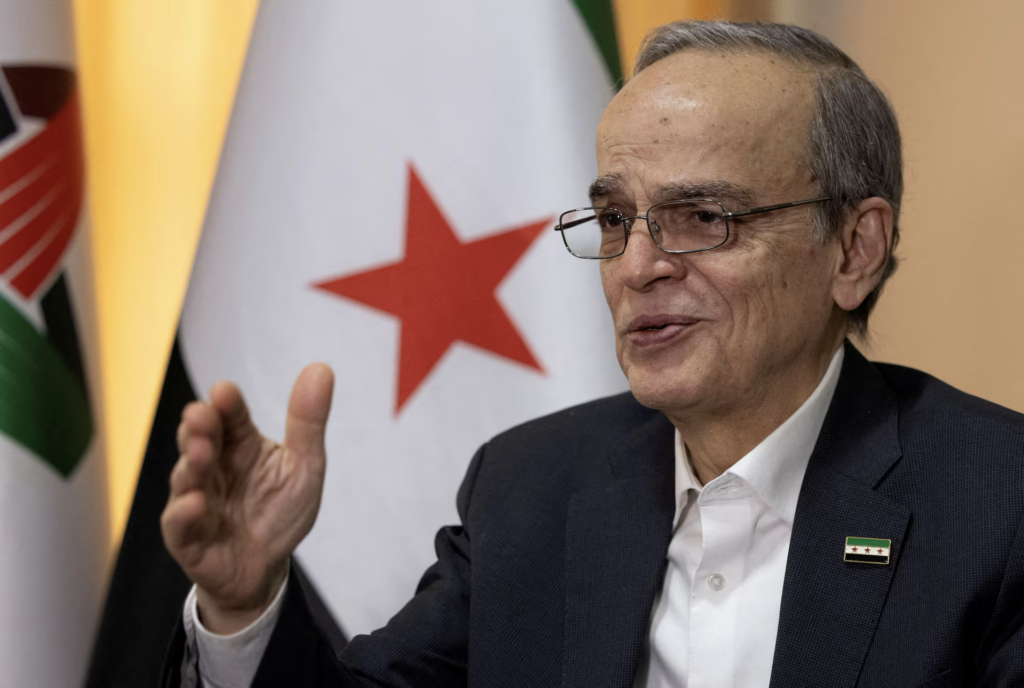Ahmed al Sharaa, better known as Abu Mohammad al-Golani leader of Hayat Tahrir Al-Sham (HTS) told CNN on December 5: “These sects ( Alwawites, Christians and Druze) have coexisted in this region for hundreds of years, and no one has the right to eliminate them.” So far Golani has been saying the right things. The question on everyone’s mind is: Are these words just to appease or for for real? If for real will his fighters be following his directive? Sharaa’s announcements on Monday that it could take up to 4 years to hold an election in Syria and three years to write the constitution shocked the International community .The last thing the Syrians want to see is another dictator like Bashar al-Assad
By: Sebastian Usher
The new Syrian authorities are reported to have given some foreign Islamist fighters senior official posts in the country’s armed forces.
The army is being re-organised by Hayat Tahrir al-Sham (HTS), the Islamist group that is now effectively in charge of the country following the overthrow of former President Bashar al-Assad earlier this month.
There’s been no confirmation by the new leadership of the move, but it seems likely to raise concern inside and outside Syria over the role such foreign militants may play in the country’s future.
It comes amid reports that Syria’s new de-facto leader, Ahmed al-Sharaa, has held separate meetings with representatives of the Kurds and Christians in the country – two communities that are most concerned about the potential agenda of the new authorities.
Several Syrian sources have deduced that out of almost 50 new military roles that have been announced, at least six have gone to foreigners.
Based on the names that have been published, they are said to include Chinese Uyghurs, a Jordanian and a Turkish national. All are said to have been given high-ranking positions as colonels or brigadier-generals.
The role of foreign fighters in various armed groups during the civil war is one that stirs strong feelings in Syria.
Thousands of fighters from many different countries joined the uprising against Assad as it became an all-out armed conflict when mass protests were met with violence by the security forces.
Jihadists from abroad were seen as trying to impose their extremist ideology on Syria – something which Syrians from all communities are now saying they will not accept in the country’s future after Assad.
Some formed their own groups and others provided the core of the Islamic State (IS) group, which took control of large regions in the east of Syria.
Opponents of HTS had long accused it of being largely made up of foreign jihadists – a charge Assad supporters used to try to delegitimize the group as it mounted its final, decisive offensive against the regime.
But in the years that he ran the rebel enclave in Idlib, Ahmed al-Sharaa – the leader of HTS and now Syria – had been getting rid of some of those foreign fighters in a bid to bolster his group’s credentials as a nationalist rather than overtly jihadist force.
Since taking power al-Sharaa has repeatedly stressed the vision of a unified Syrian state, in which all communities must be respected and have a stake.
On Tuesday, a Syrian official said the first talks between members of the Kurdish-led Syrian Democratic Forces (SDF) and al-Sharaa since he became the most powerful man in Syria three weeks ago have now taken place and were positive.
The SDF is backed by the US and controls much of the north-east of Syria.
But Turkey, which has backed al-Sharaa’s group HTS, sees them as terrorists, which has raised fears of a looming confrontation.
Al-Sharaa has also met high level members of the Christian clergy. The Christian minority in Syria has long felt threatened by the rise of Islamic fundamentalism.
HTS once espoused such an ideology, but al-Sharaa has for some time embraced a more moderate stance.
He has stressed that he wants all communities to have a stake in Syria’s future and is preparing a National Dialogue Conference to try to ensure that this process can begin.

Farouq Al Sharaa, former Syrian VP of the deposed Assad regime and who is a close relative of Ahmed Al Sharaa has reportedly been invited to the National Dialogue Conference, but members of the National Coalition for Syrian Revolutionary and Opposition Forces have reportedly not been invited . This issue was raised by its president Hadi al-Bahra.
Al-Bahra revealed during an interview with Al-Arabiya channel that the coalition has not had any contact with the new administration.
Al-Bahra, has served as chief negotiator at the failed peace talks with the government of Syrian President Bashar Al-Assad in February in Geneva. Bahra, aged 54, succeeded Ahmed Al-Jarba.
His coalition only nominally controls nationalist-minded rebels that in many parts of Syria been overrun by Islamic extremist groups, including the Islamic State of Iraq and Syria (ISIS) and HTS .
BBC/ Al Arabiya

